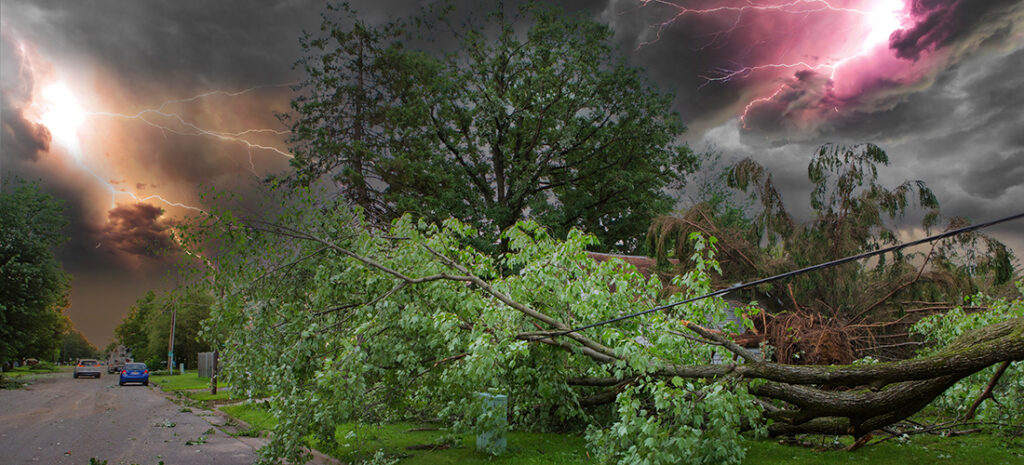EMERGENCY MANAGEMENT

The Evolving Landscape of Domestic Extremism
- Richard Schoeberl
Extremism in its many forms remains a growing threat in the U.S. There is heightened concern about ongoing violent extremist reactions to both domestic sociopolitical developments and international events that may be used to justify attacks. Countering this threat requires a comprehensive strategy, including improved intelligence efforts, stronger partnerships, and expanded investigations and prosecutions.
MOST Recent

Threat Detection at Events: A Collaborative, Layered Approach
Tami Richter
August 13, 2025
Large-scale events are high-visibility targets for threats and terrorism, and disruptions can range from minor to catastrophic. Preventing such incidents requires a multilayered approach across all event phases. While large events draw the most attention, smaller gatherings can be just as vulnerable and should not be overlooked.

Preparing Small Communities for Terrorist Attacks
Rodney Andreasen
August 13, 2025
Terrorist attacks have broad psychological, social, and economic impacts that often extend beyond the initial target. While large cities are typical targets due to their prominence, smaller communities are not immune, and an attack could overwhelm limited resources and devastate a community.

John Wilson on Knowing What to Do When Stuff Hits the Ground
Domestic Preparedness
August 13, 2025
John Wilson is well-versed in emergency management and hurricane preparedness. In this discussion with Domestic Preparedness, he shares his lessons learned about the evolution of emergency management and the evolving challenges that preparedness professionals face today.

Reimagining Readiness: The Future of Emergency Management in Homeland Defense
Cody Santiago
August 6, 2025
Underdeveloped civilian emergency management integration with Department of Defense resources results in gaps in preparedness, intelligence-sharing, and response coordination. A more integrated framework can incorporate emergency management as a core pillar of homeland defense, improve intelligence-sharing, and strengthen resilience.
EMERGENCY MANAGEMENT ARCHIVES
Reimagining Readiness: The Future of Emergency Management in Homeland Defense
Cody Santiago
August 6, 2025
Underdeveloped civilian emergency management integration with Department of Defense resources results in gaps in preparedness, intelligence-sharing, and response coordination. A more integrated framework can incorporate
The Optimism Bias Trap: Rethinking Threat Preparedness
Joshua Sullivan
August 6, 2025
Mass violence increasingly targets ordinary people performing routine duties in uniform, behind the wheel of marked vehicles, or responding to emergency calls. This evolution in
Global Health Crises: Leadership Matters
Richard Serino and Michelle Pratt
July 30, 2025
Without strong leadership, health systems are susceptible to policy missteps, financial pressures, and inadequate responses during emergencies. As crises develop and clearer data on risk
Not Optional: The Public Health Consequences of Dismantling Emergency Infrastructure
Andrew D. Pickett and Raphael M. Barishansky
July 30, 2025
During the COVID-19 crisis, decades of investment in healthcare emergency infrastructure—funded through two key federal programs—allowed emergency operations centers to mobilize rapidly, hospital coalitions to
Wildfires: The Growing Public Health Threat
Robert LaMacchia
July 23, 2025
Protecting people from wildfire smoke is a necessary extension of environmental resilience and public health strategy. Public health systems must adapt to effects from respiratory
Fast, Flexible, Creative: What Emergency Managers Can Learn From Entrepreneurs
Bear Afkhami
July 23, 2025
Start-ups are known for their self-reliance toward success. Especially in light of expected reductions in federal funding, emergency management shares similar entrepreneurial attributes, and emergency
Follow Us
Get Instant Access
Subscribe today to Domestic Preparedness and get real-world insights for safer communities.
EMERGENCY MANAGEMENT
Most Recent

A Seven-Phase Framework for Organizational Resilience
Michelle Colosimo
July 16, 2025
Organizations cannot always dictate the course of a crisis—whether an incident, active threat, or natural disaster—but they can shape their

Communication and Decision-Making During COVID: Lessons From Virginia
Erin Sutton
July 16, 2025
Traditional hierarchical structures present challenges when crises span jurisdictions, agencies, and organizations. Lessons learned from Virginia’s COVID-19 response revealed a

Integrating Research Labs Into Emergency Response
Joshua Dise and Anthony Falzarano
July 9, 2025
In today’s complex threat environment, the ability to move from pathogen detection to action depends on infrastructure and intentional integration

Mitigating Emerging and Re-Emerging Public Health Threats
Raphael M. Barishansky
July 9, 2025
Preparedness is not a luxury—it is essential for global health security. Emerging diseases, antimicrobial resistance, and re-emerging threats like measles
EMERGENCY MANAGEMENT ARCHIVES
Managing Animal Loss: Emergency Carcass Operations
Joshua Dise and Marshal Wilson
June 11, 2025
Carcass management is rarely top of mind for emergency managers, but during mass animal deaths, it tests preparedness, coordination, and public trust. Including it in
Why Emergency Management Is a Good Career for Transitioning Veterans
Mathew Perrill
June 11, 2025
For many service members, the transition from the military to a civilian workforce can be challenging. They have been trained in a specialized skill set
Caring for the Affected at Family Assistance Centers
Jennifer Stansberry Miller
May 28, 2025
In moments of crisis, a well-executed family assistance center can offer clarity, connection, and compassion that victims’ families and survivors need to begin making sense
Meeting the Psychosocial Needs of Child Survivors
Emily Heard
May 21, 2025
Without adequate support and resources, disasters can leave lasting psychological effects on children. In the United States, an estimated 14% of children experience a natural
Not Lost in Translation: A Multilingual Corps Approach
Diana Sanchez-Vega
May 14, 2025
Disaster survivors and responders often face psychological hazards like acute stress disorder, depression, and post-traumatic stress. These issues are worsened in multilingual communities, where language
Disaster Stress Management in an Emergency Operations Center
Mary Schoenfeldt
May 7, 2025
Disasters affect responders and community members, but they also bring trauma to those working inside emergency operations centers. Distance from the scene does not create
Follow Us
Get Instant Access
Subscribe today to Domestic Preparedness and get real-world insights for safer communities.



